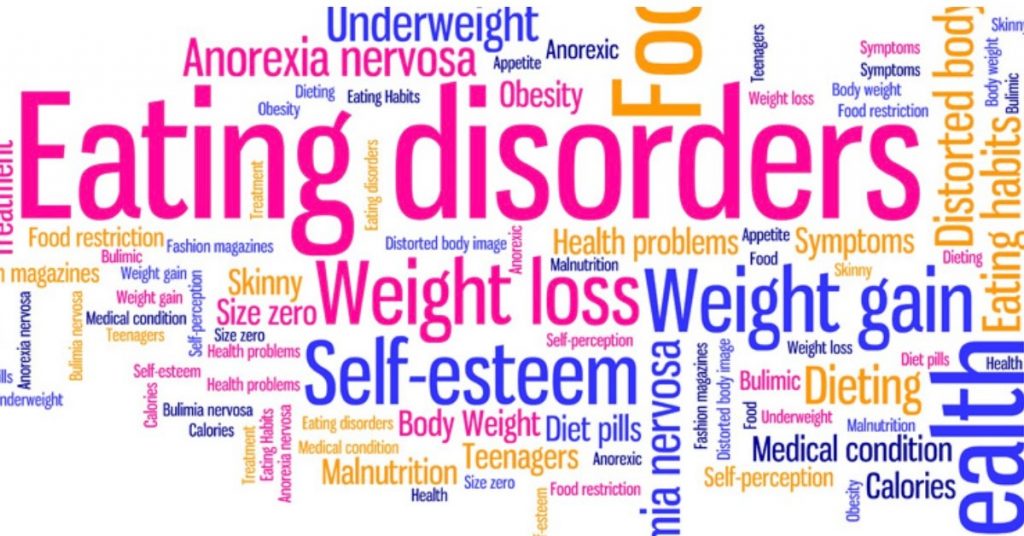Eating Disorder Treatment in Los Angeles

It is estimated that at least 30 million people in the U.S. suffer from an Eating Disorder. Characterized by a severe disturbance in eating behavior and an unhealthy preoccupation with body weight, Eating Disorders are part of a complex Mental Health condition that can have serious health consequences if left untreated. For Eating Disorder treatment in Los Angeles and the surrounding areas, you can trust the Blair Wellness Group to help.
For most people, food holds a psychological and emotional connection that provides feelings of pleasure and gratification. However, for some, food is part of a more complicated relationship that can involve dangerous behaviors, negative body image, depression, and addiction. Because Eating Disorders are less about food and more about psychological health, it’s important to seek treatment from a clinical psychologist specializing in eating disorders. They can help you identify the underlying cause(s) while also considering the influence of other Mental Health conditions.
At Blair Wellness Group of Beverly Hills, we provide individualized and comprehensive treatment for a variety of Eating Disorders including Anorexia Nervosa, Bulimia Nervosa, and Binge Eating Disorder. If you or someone you know has an Eating Disorder, it’s important to seek help from a Licensed Clinical Psychologist as soon as possible to get professional treatment for Eating Disorders in Los Angeles. With the dedicated help of Dr. Blair, patients can break free from this and other serious Mental Health Conditions and pursue a path toward a healthier and more fulfilling life.

Risk Factors for Eating Disorders
Eating Disorders are complex. Research shows that most people who develop an Eating Disorder often have one or more risk factors. However, those factors in and of themselves do not necessarily mean that if a person has them, that they will develop an Eating Disorder.
Risk factors affect people differently, meaning that two people with the same risk factors may still have very different experiences and symptoms. That’s why it’s imperative to treat each person as a unique case and tailor treatment to match his or her specific needs. The following is a list of some of the most common risk factors for Eating Disorders.
- Genetic Predisposition: One or more members of the family have had an eating disorder or mental health condition
- Personality: Competitive in nature, perfectionist, desire to please people
- Social Pressure: Person has been teased or bullied about their weight
- History of a mental health problem such as anxiety, obsessive-compulsive personality disorder, and depression
- Negative body image: Preoccupation with weight and dieting
- Triggering event such as illness, death of a loved one, or relationship break-up
- History of sexual abuse or other trauma
- Participation in sports or other activities that encourage people to be thin
Other Service
-
Binge Eating DisorderBinge Eating Disorder
-
Anorexia NervosaAnorexia Nervosa
-
Bulimia NervosaBulimia Nervosa

Office Hours
Mon - Fri :
7 am - 11 pm
Sat - Sun :
9 am - 10 pm
Get Help for Eating Disorders
Common Types of Eating Disorders
The term “eating disorder” encompasses a wide range of mental illnesses with the shared characteristic of some sort of harmful food-centered behavior. The following is an overview of some of the most common types.

Anorexia Nervosa
This is considered to be one of the most serious eating disorders. It usually involves self-starvation through severe food restriction that is sometimes coupled with excessive exercising and purging. Someone suffering from anorexia will usually have an intense fear of gaining weight and will often appear to be alarmingly underweight. Despite their appearance, most patients will refuse to acknowledge that they have a problem or that they are unhealthy in any way.
Bulimia Nervosa
This condition is characterized by repeated binging on large amounts of food followed by behaviors to counteract the overindulgence. Most commonly, people who suffer from bulimia will force themselves to throw up, engage in excessive exercise, or abuse laxatives. This can result in several health complications including gastrointestinal problems, chronic dehydration, esophageal tears, and difficulty swallowing, as well as many other more severe symptoms.


Binge Eating Disorder
As the name suggests, binge eating disorder is characterized by binging, or consuming large quantities of food within a short period of time. Shortly thereafter, the person may feel guilty or ashamed but does not engage in the purging behavior associated with bulimia. The consequences of binge eating range from reduced quality of life to more serious health issues such as obesity, high blood pressure, and heart disease.
Other Eating Disorders
Anorexia, bulimia, and binge eating disorder encompass the majority of eating disorder cases, however, there are several other types that are recognized by the mental health community, including:
- Compulsive Overeating: Eating large amounts of food all day long
- Diabulimia: Trying to induce weight loss through misuse of prescription insulin
- Avoidant Restrictive Food Intake Disorder: Extreme selectivity in food that results in unhealthy weight loss
- Pica: Craving and eating items that are not considered food such as dirt, soap, or paper
- Rumination Disorder: Regurgitation of food that has previously been chewed and swallowed followed by re-chewing, re-swallowing, or spitting out of the food

Treatment for Eating Disorders
Because of their complexity and association with deep-rooted psychological conditions, Eating Disorders require treatment from a health professional who can effectively identify and address the cause so that recovery can be achieved. Dr. Cassidy Blair of Blair Wellness Group is a Licensed Clinical Psychologist specializing in Eating Disorders and Eating Disorder Treatments in Los Angeles and throughout Orange County. We provide guidance and support combined with a customized approach to the treatment of all Eating Disorders. With Dr. Blair’s supervision, care, and use of evidence-based Eating Disorder treatment therapies such as Cognitive-Behavioral Treatment, Dialectical Behavioral Treatment, Psychodynamic Treatment, Family Systems, and Psychoanalysis, we help patients change the distorted thoughts and emotions that are fueling their maladaptive, harmful, self-injurious, and dysfunctional behaviors.
Many people who suffer from Eating Disorders often feel embarrassed or ashamed and therefore hesitate to seek treatment. That’s why, at Blair Wellness Group we offer concierge-style care so our patients can get the recovery, healing, and support they need, with the convenience of direct pay and without having to worry about dealing with insurance companies or any record of Mental Health treatment with third-party payors. Additionally, all of our concierge patients receive priority scheduling that includes direct access to Dr. Blair, seven days a week, including evening, weekend, and lunchtime appointments.
In-Person, Telephone, and Teletherapy Treatment for Eating Disorders
For the safety and convenience of our patients, Blair Wellness Group is offering in-person, teletherapy sessions, and telephone meetings during COVID-19 pandemic. This allows all our patients to seek treatment whenever they need it, from the comfort and privacy of their home, office, or at our exclusive space.
Do you or someone you know need help overcoming an Eating Disorder? Our comprehensive, individualized approach to Mental Health treatment can help you address the root of the issue, overcome your symptoms, and regain control over your life. Don’t hesitate to build the happier, healthier life you deserve. Make an appointment with a Licensed Clinical Psychologist for Eating Disorders in Orange County today. Contact Blair Wellness Group at 310.999.4996.
- This field is for validation purposes and should be left unchanged.
-
- MM slash DD slash YYYY
Cancellation/Refund Policy:
Please note, there are absolutely no refunds for any of your prepaid sessions in case of broken appointments by you as the professional times and days were reserved for you and will be considered as broken appointments. We ask that you do not make appointments unless you fully intend to keep all your future weekly appointments as we do not issue refunds on ANY prepaid appointment. Please note, our practice is fully committed based on previously scheduled times for our clients at least 2 weeks in advance.
Our Core Values
Discover effective solutions for addiction at Blair Wellness Group today. Call us at 310.999.4996 to schedule an appointment. We welcome patients from Beverly Hills, Los Angeles, Irvine, Newport Beach, and the surrounding areas.

Reliable
At Blair Wellness Group, we are here to meet your clinical needs at any time.

Dedicated Support
Our team provides the compassionate care, support, and necessary interventions needed for our clients to achieve their goals and clinical objectives.

Experience
With 15+ years of clinical experience in providing an array of psychological services, we are committed to helping our patients achieve their goals.

Professional Team Support
We are dedicated to the well-being of our clients and have the extensive training to provide them with high-quality care.
Looking for a Local Psychologist?
Our Psychologists and Therapists in Los Angeles, Beverly Hills, Irvine, Newport Beach, and the surrounding areas offer evening and weekend appointments for our Concierge patients. Contact us today to discover how Blair Wellness Group can help you overcome personal or professional challenges and mental health disorders, such as depression, anxiety, relationship challenges, addiction issues, and personality disorders.
Dr. Cassidy Blair is a renowned Licensed Clinical Psychologist and trusted Performance Coach who specializes in providing Concierge-Psychological Care and Executive Coaching for high-achieving professionals. With a deep understanding of the unique challenges faced by CEOs, executives, entrepreneurs, and leaders, Dr. Blair offers tailored, confidential care designed to foster emotional well-being, personal growth, and professional excellence. Her clientele values her discretion, clinical expertise, and emotionally intelligent approach to navigating complex personal and professional dynamics.
- This author does not have any more posts.


